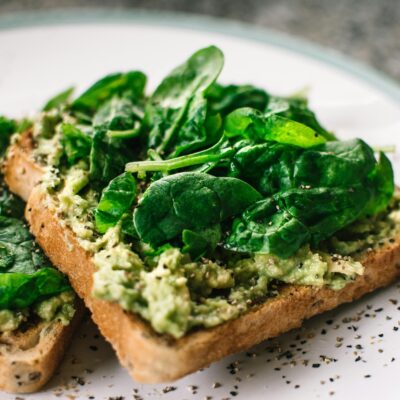When Vegan Isn’t Enough: The Personalized Path to Lasting Fibromyalgia Relief
Discover the pros and cons of vegan diets in managing fibromyalgia. Dr. Chan Doser explains how gut health, phytochemicals, and food sensitivities play a key role in long-term relief.
A Vegan and Plant-Based Diet for Sjögren’s Syndrome: Does It Really Work?
Find out if vegan and plant‑based diets can help manage Sjögren’s syndrome, uncover common mistakes, key foods to include or avoid, and learn how to track your progress for optimal results.
Vegan Diets and Rheumatoid Arthritis: Separating Hype from Healing
Discover how a tailored, phytonutrient-rich plant-based diet—balanced for protein, targeted to your microbiome, and sensitive to triggers—can offer lasting RA relief.
Navigating Vegan Diets for IBS: Beyond Plant-Based Labels with the Mind–Gut–Immunity Method
Discover whether vegan and plant‑based diets can alleviate IBS, learn common pitfalls, key foods to include or avoid, and how to effectively track your progress for lasting relief.
Vegan and Plant-Based Diets for Eczema: Temporary Relief or Lasting Solution?
Learn whether vegan and plant‑based diets can improve eczema, discover key foods to include or avoid, common pitfalls, and how to track your progress for lasting relief.
Categories
Featured
-
 When Vegan Isn’t Enough: The Personalized Path to Lasting Fibromyalgia Relief30 Jun 2025
When Vegan Isn’t Enough: The Personalized Path to Lasting Fibromyalgia Relief30 Jun 2025 -
 A Vegan and Plant-Based Diet for Sjögren’s Syndrome: Does It Really Work?28 Jun 2025
A Vegan and Plant-Based Diet for Sjögren’s Syndrome: Does It Really Work?28 Jun 2025 -
 Vegan Diets and Rheumatoid Arthritis: Separating Hype from Healing26 Jun 2025
Vegan Diets and Rheumatoid Arthritis: Separating Hype from Healing26 Jun 2025 -
 Navigating Vegan Diets for IBS: Beyond Plant-Based Labels with the Mind–Gut–Immunity Method24 Jun 2025
Navigating Vegan Diets for IBS: Beyond Plant-Based Labels with the Mind–Gut–Immunity Method24 Jun 2025 -
 Vegan and Plant-Based Diets for Eczema: Temporary Relief or Lasting Solution?22 Jun 2025
Vegan and Plant-Based Diets for Eczema: Temporary Relief or Lasting Solution?22 Jun 2025 -
 Fasting and Rheumatoid Arthritis: Why a Phyto Diet Offers Sustainable Relief20 Jun 2025
Fasting and Rheumatoid Arthritis: Why a Phyto Diet Offers Sustainable Relief20 Jun 2025 -
 Vegan and Plant-Based Diets for Lupus: Do They Actually Work?18 Jun 2025
Vegan and Plant-Based Diets for Lupus: Do They Actually Work?18 Jun 2025 -
 Embracing a Balanced Plant-Powered Approach for Multiple Sclerosis16 Jun 2025
Embracing a Balanced Plant-Powered Approach for Multiple Sclerosis16 Jun 2025 -
 Why Vegan Diets Alone May Fall Short for Psoriasis: A Gut-Focused Perspective14 Jun 2025
Why Vegan Diets Alone May Fall Short for Psoriasis: A Gut-Focused Perspective14 Jun 2025 -
 Rooted Relief: Can a Vegan Diet Transform Ulcerative Colitis Care?12 Jun 2025
Rooted Relief: Can a Vegan Diet Transform Ulcerative Colitis Care?12 Jun 2025 -
 Embracing a Smarter Plant-Based Strategy for Crohn’s Disease10 Jun 2025
Embracing a Smarter Plant-Based Strategy for Crohn’s Disease10 Jun 2025
Newsletter
Get Better Today !
Ready to start?
Discover the healing approach that actually works from Mind-Gut-Immunity.







